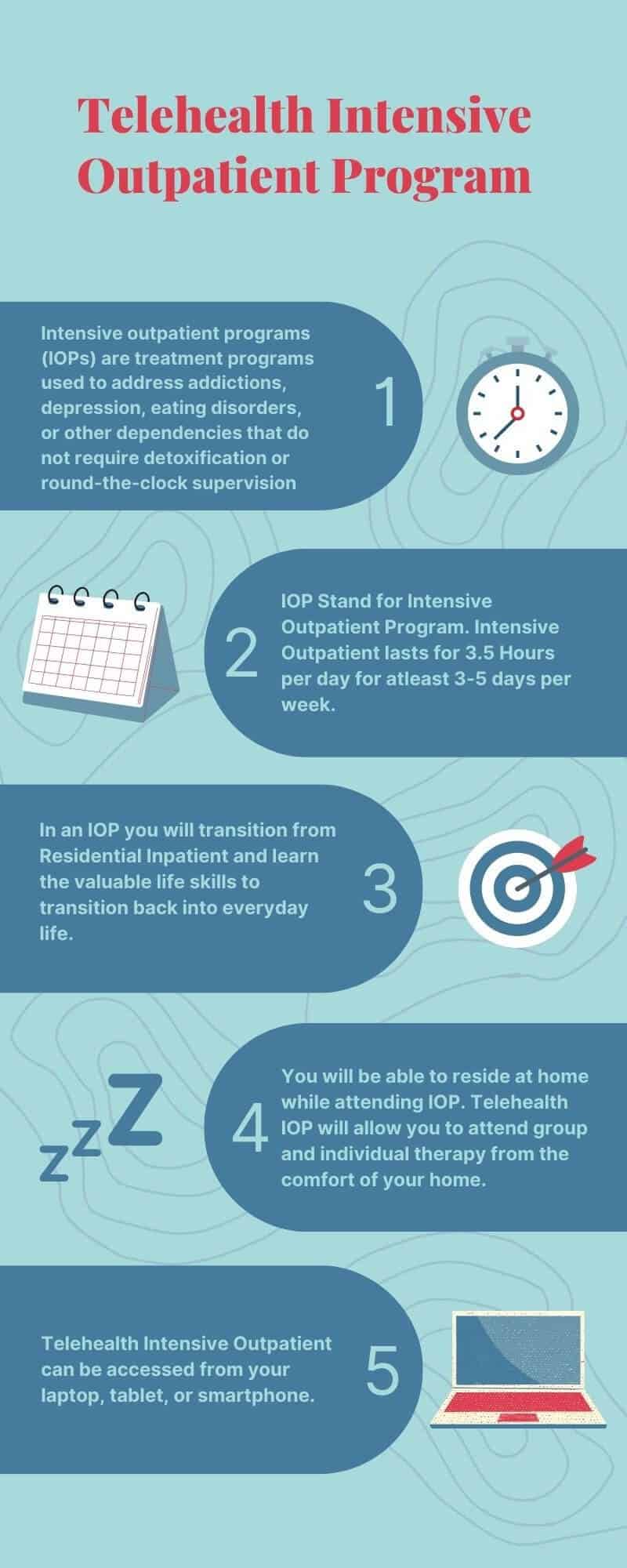Exactly How an Intensive Outpatient Program (IOP) Can Support Your Mental Health And Wellness Journey.
Exactly How an Intensive Outpatient Program (IOP) Can Support Your Mental Health And Wellness Journey.
Blog Article
Browsing the Complexities of Double Medical Diagnosis Treatment Within an Extensive Outpatient Program Setting
In the world of psychological health and dependency therapy, the crossway of twin diagnosis offers a nuanced difficulty that demands a thorough and customized approach. By checking out the ins and outs of dual medical diagnosis therapy within this extensive outpatient context, a more clear path arises towards alternative and lasting healing for those grappling with these linked difficulties.
Twin Diagnosis Review

Recognizing dual diagnosis is crucial as it requires a detailed and integrated technique to therapy. By acknowledging the interplay in between substance usage and mental health and wellness, doctor can tailor interventions to fulfill the unique requirements of each person. This all natural technique not only addresses signs yet also targets underlying aspects that add to the dual diagnosis.
Moreover, untreated double medical diagnosis can bring about a cycle of regression and worsening mental health and wellness signs and symptoms. By identifying the intricacy of dual medical diagnosis and offering specific treatment, health care specialists can sustain people in attaining lasting recovery and boosted psychological health.
Tailored Therapy Strategies
Identifying the intricate interplay between substance use disorders and psychological health conditions, the development of tailored treatment plans is paramount in dealing with the complexities of dual medical diagnosis in psychological wellness therapy. Customized therapy strategies are individualized approaches that take into consideration the one-of-a-kind requirements, difficulties, and goals of individuals facing twin medical diagnosis. These strategies are developed collaboratively by a multidisciplinary team of professionals, consisting of psychoanalysts, psychologists, social workers, and dependency professionals, to guarantee thorough and integrated treatment.
Tailored therapy plans usually include a combination of therapies, drugs, and behavior treatments that target both the compound usage condition and the mental health problem concurrently. These plans might include cognitive-behavioral treatment, dialectical actions therapy, medication-assisted therapy, private counseling, team therapy, and family members therapy, to name a few evidence-based interventions. By tailoring treatment approaches to specific situations, customized strategies can attend to the origin of dual medical diagnosis, promote long-lasting recovery, and boost general top quality of life for individuals dealing with co-occurring problems.
Integrated Care Strategy
An integrated treatment technique in dual medical diagnosis view it treatment incorporates medical, emotional, and social interventions to resolve the complicated demands of people with co-occurring compound use problems and mental wellness problems. This approach identifies that treating one element of a dual medical diagnosis without dealing with the various other can cause inadequate results. By incorporating medical treatments such as medication administration for psychological health and wellness problems with psychological therapies like cognitive-behavioral treatment for substance usage problems, individuals get extensive treatment that targets all aspects of their twin diagnosis.
By integrating social treatments like family members therapy, vocational support, and area resources, the treatment ends up being a lot more all natural and image source customized to the person's certain requirements - Intensive Outpatient Program (IOP). Generally, an integrated care method in dual medical diagnosis treatment within an extensive outpatient program setup aims to provide detailed, reliable, and customized care to people dealing with co-occurring disorders.
Obstacles in IOP Setting
In the context of dual medical diagnosis treatment within an intensive outpatient program, browsing the intricacies of co-occurring substance usage disorders and psychological health and wellness conditions provides significant obstacles. One of the key obstacles in the IOP setup is the control of care in between psychological health and wellness specialists and drug abuse experts to ensure a thorough treatment strategy. This needs effective interaction, collaboration, and a deep understanding of exactly how these conditions connect and influence each various other.

Moreover, dealing with preconception and resistance to therapy within the IOP setting can hinder progress. Some people might be hesitant to reveal their double diagnosis or might really feel ashamed, impeding their involvement in the healing process. Overcoming these obstacles necessitates a supportive and non-judgmental setting that promotes trust and visibility.

Collaborative Professional Efforts
Effective dual diagnosis therapy in an extensive outpatient program necessitates smooth cooperation among psychological health and wellness experts and substance abuse specialists to make certain a thorough and integrated technique to care. By working together, these specialists can create personalized therapy strategies that cater to the special requirements of each person, considering both their psychological wellness and compound misuse challenges.
Joint initiatives additionally extend to normal interaction and information sharing among group members to make sure a cohesive therapy technique. This may entail case seminars, joint sessions with the person, or shared paperwork to track progression and change treatment techniques as needed. In addition, collaboration might consist of entailing other health care specialists such as health care medical professionals or family members therapists to offer alternative assistance to the patient. Eventually, an unified front of specialists interacting enhances the efficiency of double medical diagnosis therapy within an extensive outpatient program.
Final Thought
To conclude, reliable twin medical diagnosis therapy within an intensive outpatient program setting requires tailored treatment plans and an integrated treatment strategy. Challenges may occur in this setup, however joint initiatives among experts can aid browse these intricacies. By resolving the unique needs of individuals with co-occurring mental wellness and substance utilize problems, IOP programs can offer extensive and all natural care to support recovery and general well-being.
Report this page